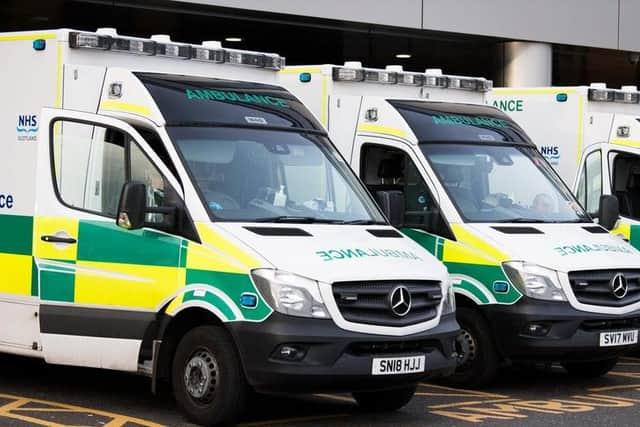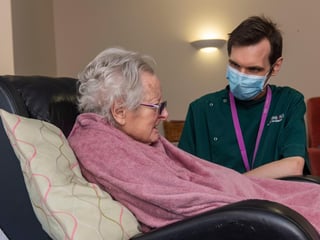Scottish ambulance response times hit by Covid pandemic protocols
The need for paramedics to don protective equipment and clean ambulances between patients are among the new requirements which are taking their toll on turnaround times.
Almost 150 new staff are being recruited to help address the issue, Holyrood's health committee heard on Tuesday.


Advertisement
Hide AdAdvertisement
Hide AdThe ambulance service has a national standard of answering 75 per cent of calls classed as life threatening within eight minutes. But this figure was 64.7 per cent in 2019/20, down from 70 per cent the previous year, the committee has heard.
And Pauline Howie, chief executive of the Scotttish Ambulance Service (SAS), told MSPs: "Our response times this year (2020/21) have increased across all the different categories and that's because of the additional time for doffing and donning of equipment or cleaning of vehicles – ambulances in between patients – that is more intensive than it previously was.
"At hospital [the] more stringent cleaning requirements for patients to be assessed, that adds a bit of time."
Ms Howie said wearing PPE could be "quite uncomfortable" for ambulance staff.
"We need to ensure that our staff are provided with time to re-hydrate and to cool down after wearing that equipment as well,” she said.
Ms Howie said there were no figures available yet to quantify the extent to which response times have risen in 2020/21 during the pandemic.
But ambulance response times have been "gradually increasing" since the summer of 2019, she added.
However, targets are being met for heart attack patients and the ambulance chief insisted response times were a "key focus" of its approach.
Advertisement
Hide AdAdvertisement
Hide AdDemand has also been increasing on the service, Ms Howie added. Community first responders were also suspended in the early stages of the pandemic to undergo retraining to ensure they were properly protected in dealing with the virus.
"We're continuing to focus on trying to reduce response times,” she said.
“We've got enhanced escalation procedures in place with all hospitals where we're seeing exacerbations of turnaround times. We've introduced system changes very recently in the last few weeks around auto dispatch for high acuity patients."
A message from the Editor:Thank you for reading this article. We're more reliant on your support than ever as the shift in consumer habits brought about by Coronavirus impacts our advertisers.
If you haven't already, please consider supporting our trusted, fact-checked journalism by taking out a digital subscription.
Comments
Want to join the conversation? Please or to comment on this article.
